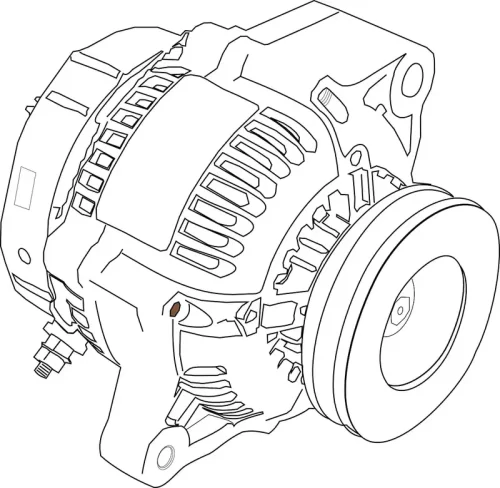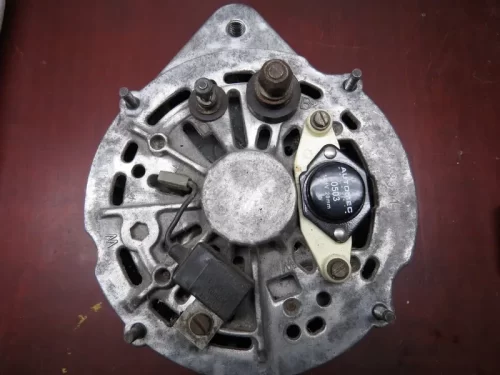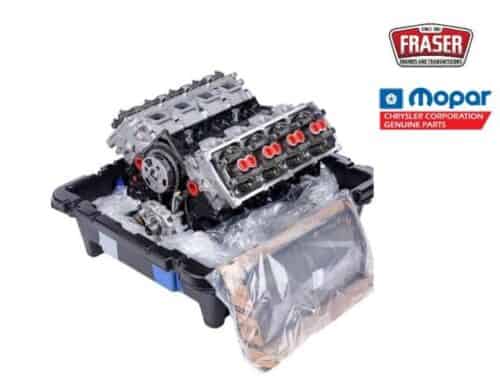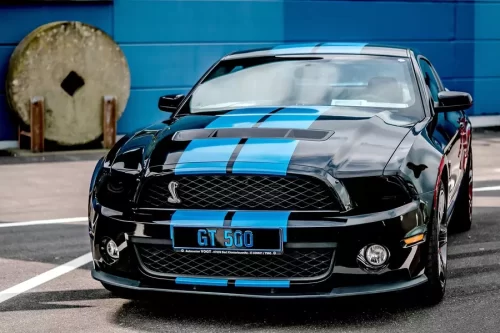
6 Tips to Protect and Preserve Your Windshield and Wipers
Issue 17 • Engine & Transmission Tip You Can Do A LOT To Protect and Preserve Your Windshield and Wipers Nobody Likes Bug Splatter. Bleck!

Inside your engine is something called an “alternator”.
The alternator is an electrical generator powered by the centrifugal force of your engine, made possible by a series of pullies and belts connected to your motor’s crankshaft.
 The alternator is a rotating electric generator, used in modern automobiles, to power the electrical system, and recharge the battery. Because the alternator requires a physical drive (rotation) to generate current, it can only work when the engine is running. The alternator is mounted directly to the engine block, and, through a series of pullies and belts, is connected to the crankshaft, which provides the necessary revolutions to generate electricity.
The alternator is a rotating electric generator, used in modern automobiles, to power the electrical system, and recharge the battery. Because the alternator requires a physical drive (rotation) to generate current, it can only work when the engine is running. The alternator is mounted directly to the engine block, and, through a series of pullies and belts, is connected to the crankshaft, which provides the necessary revolutions to generate electricity.
The alternator consists of a stator, which is a cylindrical, fixed set of coiled wires, inside of which an electromagnetic rotor spins, being powered by its pully. The process yields alternating current (AC) as magnetic fields reverse and generate an electrical charge. For most engine electronics, this electrical charge must be converted to direct current (DC) via a rectifier. The rectifier forces the electricity to travel in one direction, not both. This direct current can then power various systems in the vehicle, as well as charge the battery without the feedback issues associated with AC current.)
Besides the alternator, the starter, water pump, and power steering pump are powered by the engine’s crankshaft.
All of these systems operate constantly when the car is running and sadly all will eventually fail.
Most modern vehicles will give you a clear warning that something is awry with the alternator. Most commonly, this is indicated by the “Battery Light”, which illuminates when the battery is not receiving a sufficient charge. And, the only cause for that situation, is either a failing alternator or faulty connections from the alternator to other engine components.
If your car won’t start one morning, it’s usually the battery. So, you get a friend to “give you a jump” by attaching jumper cables from their battery to yours. Now, the important thing to do after running your car for 30 minutes or more, is to stop at an auto parts store and turn your car off. Then immediately try to start it back up. If it doesn’t start right away, your battery has likely met the end of its life and you should have the auto parts store people replace it for you while you wait.
 If, when you get home, with your new battery, and in a day or two, your car won’t start again, you’ll need to replace the alternator.
If, when you get home, with your new battery, and in a day or two, your car won’t start again, you’ll need to replace the alternator.
Alternator replacement is quite commonplace, and most auto shop mechanics can do it quickly and affordably. In this case, reconditioned alternators are the option of choice. A reconditioned alternator is disassembled, inspected, and generally only the worn contact parts need to be replaced. All other components inside usually have little or no signs of deterioration.
Rarely does an alternator failure lead to anything more dire or catastrophic. It’s more of an inconvenience than a life-long scaring event. So, listen and watch for the signs, and you’ll be prepared when the time comes.

Issue 17 • Engine & Transmission Tip You Can Do A LOT To Protect and Preserve Your Windshield and Wipers Nobody Likes Bug Splatter. Bleck!

In this article series, we’re going to talk about the heart and soul of Ford’s off-road dominance—their engines, with a special focus on the formidable

The Ford Crown Victoria, affectionately known as the “Crown Vic,” holds a special place in the hearts of car enthusiasts and cinephiles alike. Introducing the

Amity Island Police Chief Brody’s 1975 Chevy Blazer The topless Blazer was cool as heck on a hot Summer beach! While the blockbuster movie JAWS

Mopar OEM Chrysler 5.7L Crate Engine (2013-2018) Mopar OEM Chrysler 5.7L Crate Engine (2013-2016) 7 Year FRASER PLUS™ Warranty Included $ 4499 00 CORE DEPOSIT

Issue 15 • Engine & Transmission Tips Every production car manufactured in the United States has a VIN, or vehicle identification number. This 17-digit code